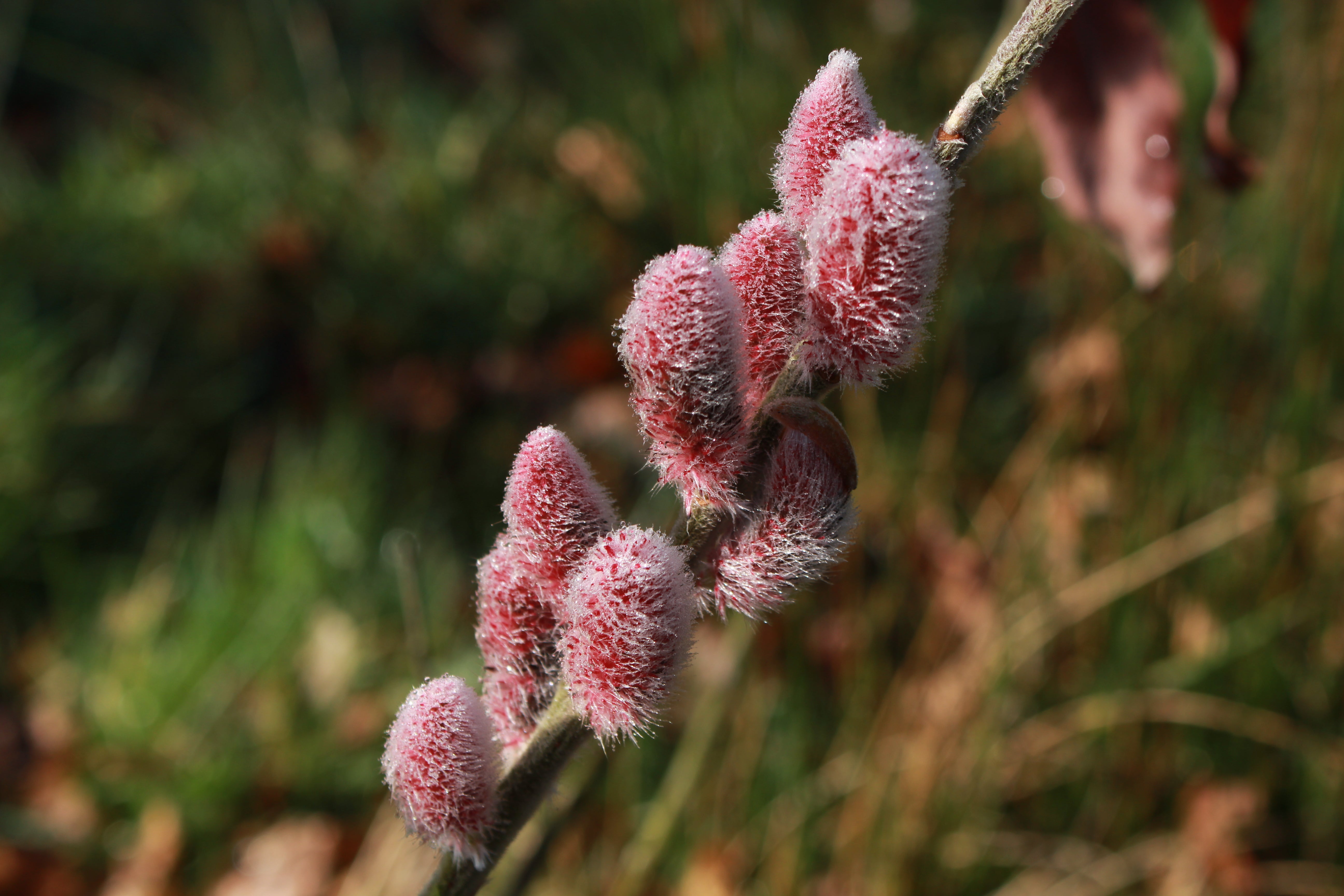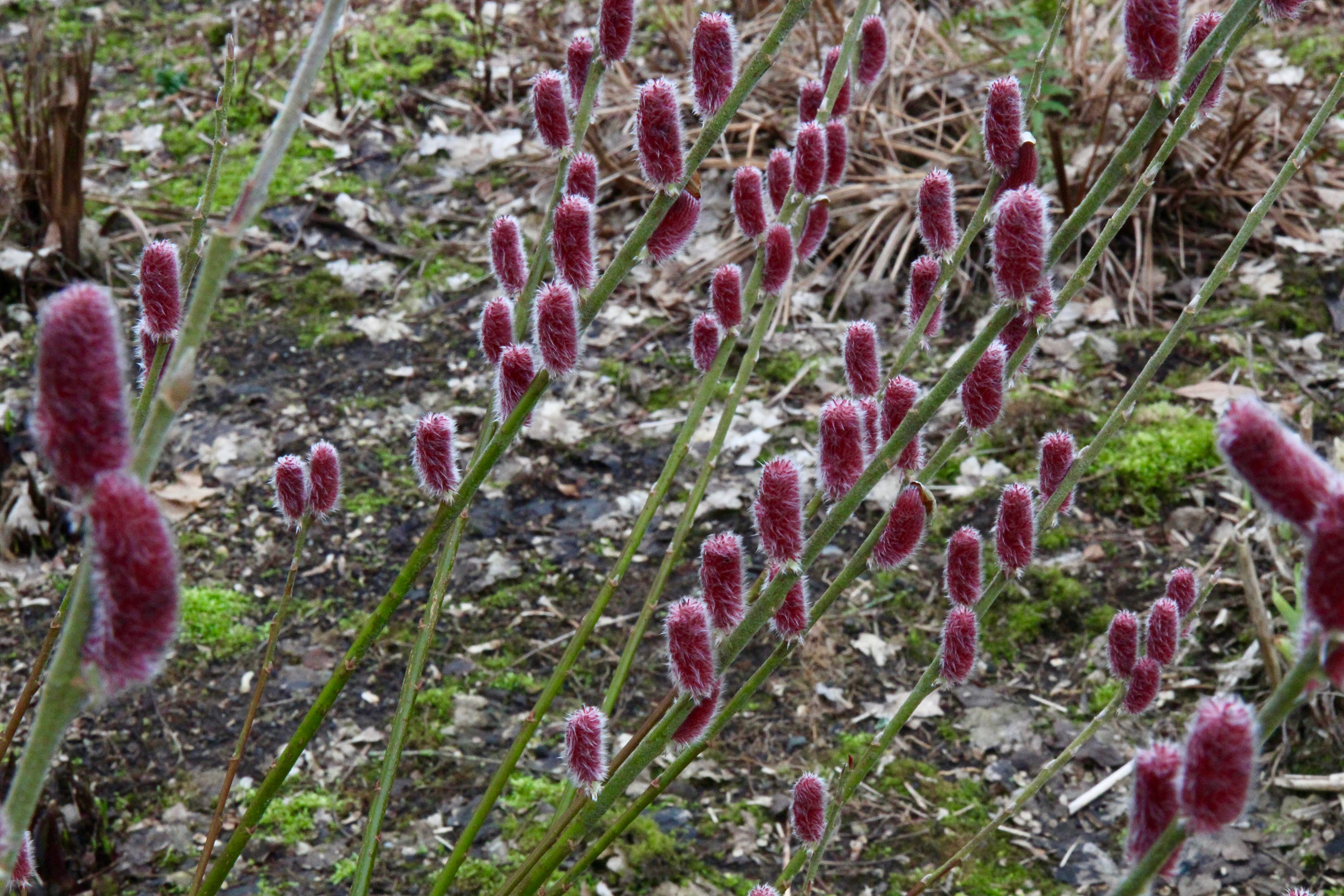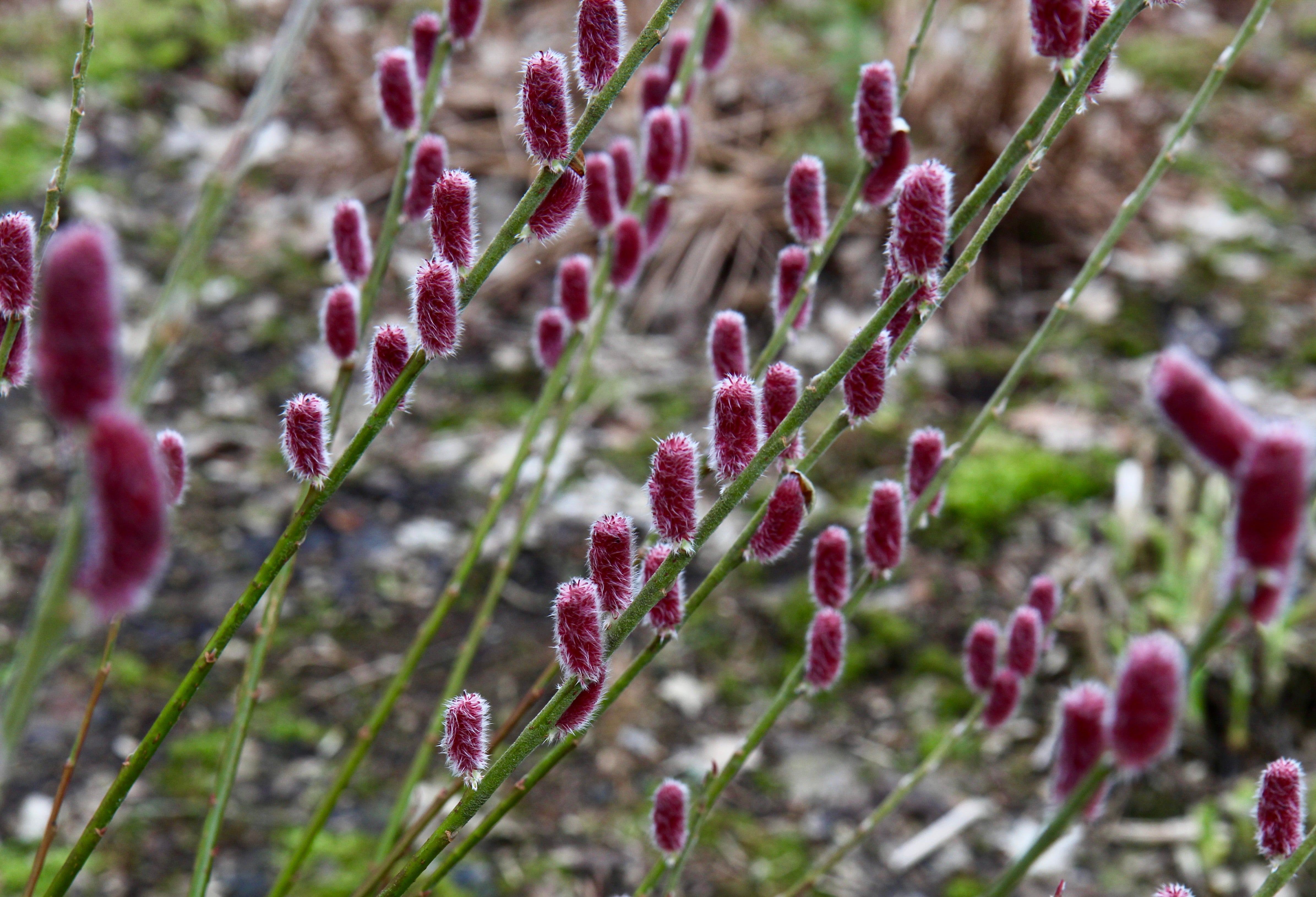Salix gracilistyla 'Mount Aso'
Approx. 0.5 litre pot
About this cultivar:
Salix gracilistyla 'Mount Aso' is a male cultivar from Japan. Selected by Dr. Tsuneshige Rokujo for the pink catkins that appear in late winter and early spring before the bluish foliage with silvery underside. Its branches make great cut flower displays and, I’ve heard, can be used for Valentine’s Day as an alternative to red roses. I prefer to keep it in the garden as I love the way the catkins catch light, moisture, and even frost.
The species, gracilistyla, is native of Japan, Korea and China and was first introduced to Europe by French nurserymen Messrs Barbier & Co. of Orleans in 1895. The specific epithet translates as ‘slender style’.
Dr. Tsuneshige Rokujo was a medical doctor and research fellow at Tokyo University, who, in his spare time became a renown plant collector and breeder, especially Rhododendron.
A short youtube video I found below:
- Position: Full sun, partial shade
- Soil: Almost any soil, grows well in Ballyrobert
- Flowers: January, February, March (Catkins) May, June (Flowers)
- Other features: --
- Hardiness: H5 - Hardy in most places throughout the UK even in severe winters (-15 to -10°C), Fully hardy, grows well in Ballyrobert
- Habit: Bushy
- Foliage: Deciduous
- Height: 150 - 300 cm (5 - 10 ft) Prune smaller if you like
- Spread: 150 - 300 cm (5 - 10 ft) Prune smaller if you like
- Time to full growth: 5 to 10 years
- Plant type: Shrub
- Colour: Green, pink
- Goes well with: --
About this genus:
Salix (sa-liks), otherwise know as willows, sallow, and osier is a genus of around 400 species of deciduous trees and shrubs, found primarily on moist soils in cold and temperate regions of the Northern Hemisphere. Salix is the Latin word for willow - probably originally from the Celtic, sal, near, and lis, water.
They grow just about anywhere! There is so much to say about this genus I'm not sure I'll even start. Any advice should really be species or cultivar specific.








